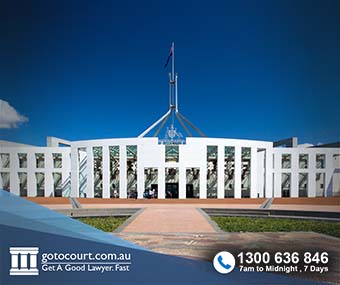Call our lawyers
now
or,
have our lawyers
call you
Native Title and the Adani Coal Mine
Updated on Sep 24, 2019 • 4 min read • 241 views • Copy Link
Native Title and the Adani Coal Mine
In August it was revealed that the Queensland government had granted exclusive possession of tracts of land in the Galilee Basin to Indian mining company Adani. The decision had the effect of extinguishing the native title rights of the Wangan and Jagalingo people, who may now be forcibly expelled from their traditional lands.
An Indigenous Land Use Agreement (ILUA) with Adani had been agreed to by seven of the native title holder groups, with the remaining five opposing it. ILUAs are generally used to facilitate the simultaneous use of land by different groups with different interests. However, now that native title has been extinguished, the objections that some traditional owners have to the coal mine no longer have legal significance.
The move has been controversial, with environmental activists saying the government has placed corporate interests ahead of traditional owners and undermined Indigenous autonomy.
What is native title?
Native title is the legal recognition that some Indigenous people continue to hold rights over their lands and waters. These rights are derived from their traditional laws and customs.
The Federal Court can make a determination of the native title rights of a particular group based on:
- Evidence that the group has a ‘traditional connection’ to the area from sovereignty to the present day;
- The group observes customs and traditions that give rise to rights and interests;
- The traditional rights sought are recognised under Australian law.
A determination of native title can only be made in an area where native title has not been extinguished. Such areas include vacant Crown land, beaches, oceans, rivers, creek and swamps not privately owned, some land subject to agricultural leases, some state forests and national parks.
Case law
In the 1992 decision of Mabo v The Queen, the High Court found that Australia was not terra nullius, or unoccupied land, when it was colonised in 1788. The case established the indigenous right to prior occupancy.
The 1996 High Court decision of Wik established that native title could co-exist with (and not be automatically extinguished by) government-issued pastoral leases.
Extinguishment of native title
Section 237A of the Native Title Act 1993 states that when native title is extinguished, the native title rights and interests cannot revive, even if the act that caused the extinguishment ceases to have effect.
Native title is extinguished where:
- Freehold land is privately owned
- Pastoral or agricultural land is leased giving exclusive possession;
- Land subject to residential or commercial leases;
- Were governments have built roads, airports, railways, schools and other public works prior to 23 December 1996.
Additionally, the Federal Court may decide that native title no longer exists. This may occur for a number of reasons, including that traditional owners have ceased to observe their traditional practices or no longer exist.
Indigenous Land Use Agreements
Indigenous Land Use Agreements (ILUAs) are voluntary agreements between native title groups and other parties about the use and management of lands. They allow people to negotiate arrangements to suit particular circumstances without having to litigate.
In the Galilee Basin area, some of the traditional owners favoured the use of ILUAs to allow mining to occur on mutually beneficial terms. Others opposed the idea, as they wanted to retain custodianship of the land.
United Nations’ Declaration on the Rights of Indigenous Peoples
In 2007, Australia voted against adopting the United Nations’ Declaration on the Rights of Indigenous Peoples, but in 2009 it accepted the declaration as aspirational. The Declaration states that Indigenous people have the right to self-determination (Article 3) and the right to self-government in matters relating to their internal and local affairs (Article 4) and the right to maintain and strengthen their distinct political, legal, economic, social and cultural institutions, while retaining their rights to participate fully, if they so choose, in the political, economic, social and cultural life of the State (Article 5).
Responses to the decision
The government’s decision to extinguish native title over 1,385 hectares of the Galilee Basin has been slammed as inconsistent with Indigenous autonomy. It has also been criticised as severely limiting the UN Declaration’s principle that Indigenous people should have authority over their own affairs. If native title rights are insecure, the human right to culture is not adequately protected.
Traditional Owner and cultural leader Adrian Burragubba said, “We have been made trespassers on our own Country.” Environmental activists have accused the government of siding with a billionaire coal company over Traditional Owners.
If you require legal advice or representation in a property law matter or in any other legal matter, please contact Go To Court Lawyers.

Affordable Lawyers
Our Go To Court Lawyers will assist you in all areas of law. We specialise in providing legal advice urgently – at the time when you need it most. If you need a lawyer right now, today, we can help you – no matter where you are in Australia.How It Works











1. You speak directly to a lawyer
When you call the Go To Court Legal Hotline, you will be connected directly to a lawyer, every time.


2. Get your legal situation assessed
We determine the best way forward in your legal matter, free of charge. If you want to go ahead and book a face-to-face appointment, we will connect you with a specialist in your local area.


3. We arrange everything as needed
If you want to go ahead and book a fact-to-face appointment, we will connect you with a specialist in your local area no matter where you are and even at very short notice.













